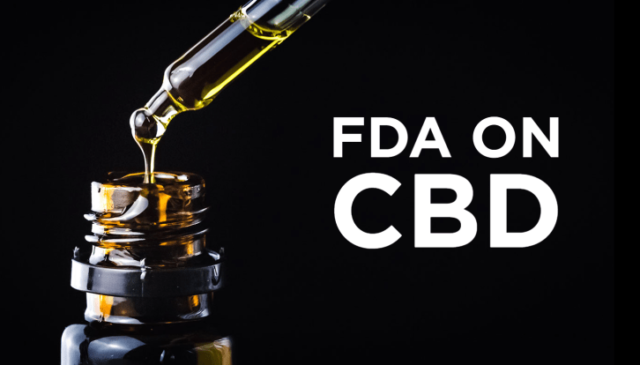
<![CDATA[
The U.S. Food and Drug Administration (FDA) this week pushed back on applications for CBD to be sold as an ingestible dietary ingredient, sending a strong signal that the federal agency is not ready to budge on this ongoing regulatory issue.
Charlotte’s Web had submitted an application requesting FDA approval of a full-spectrum hemp extract that includes CBD. The FDA objected to the application, pointing out that just a few years ago it had already sent CBD down the path of active ingredients in pharmaceutical drugs—putting the cannabinoid at odds with the ingestible food and beverage and dietary supplement market. In 2018, the FDA approved GW Pharmaceuticals’ epilepsy drug, Epidiolex, which contained CBD as an active ingredient. (The Drug Enforcement Administration [DEA] later followed that move with its own approval of Epidiolex, as well.)
“CBD is the active ingredient in the approved drug product, Epidiolex. Furthermore, the existence of substantial clinical investigations involving CBD has been made public,” Cara Welch, acting director of the FDA’s Office of Dietary Supplement Programs, wrote in a letter to Charlotte’s Web. “Accordingly, your product may not be marketed as or in a dietary supplement.”
Seeing a catch-22 in any future CBD application to the FDA, the team at Charlotte’s Web pointed to the U.S. Congress as an inevitable arbiter of this debate. The FDA, it is being reasoned, sent CBD down one regulatory path—closing off another regulatory path before the market had a chance to catch up.
“While we disagree with FDA’s reasoning, believing we provided extensive and credible scientific evidence that supported a different outcome, this decision affirms the path to regulatory clarity must come from Congress,” Charlotte’s Web Chief Executive Officer Deanie Elsner said in a statement, as published by Bloomberg.
In a public statement released by the U.S. Hemp Roundtable, the organization echoed Elsner’s reference to the legislative branch in Washington, D.C: “This should be a clarion call to Congress that it is time to step in and pass legislation to ensure that CBD products are held to the same standard as all dietary supplements and food ingredients, and to reject an NDIN-only path. It’s been more than two and a half years since hemp was legalized by the 2018 Farm Bill, and without congressional intervention, the hemp farming industry will continue to struggle, and consumers stand to lose as well.”
]]>
